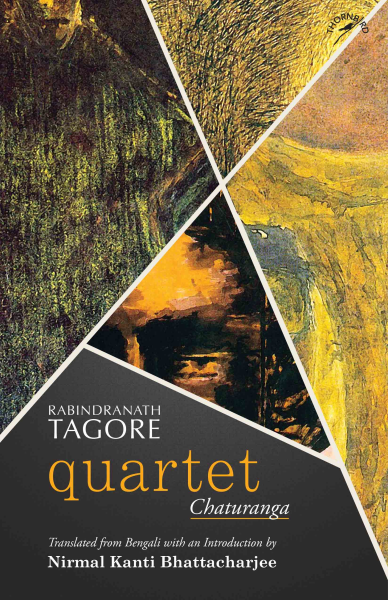
Book
Quartet

Quartet : Chaturanga
Tagore’s Chaturanga (Quartet) is a short novella set in 19th century Bengal. The philosophical questions which are raised in the course of the story make this one of his most complex and metaphorical works. A social novel centred on four characters, it raises pointed questions about religion and atheism, dabbling in the complex hues of the man-woman relationship. Published in 1916, this novel is considered a landmark in Bengali literature.
The story revolves around the four pivotal characters with just one woman in the midst of three males. And the protagonist Sachis–the most tormented soul–is torn between natural human longings and a forced imposition of spiritual emancipation. It is a struggle between the form and the formless. Subtle psychological interpretations of the minds of the characters lead relationships from the physical to the mystical and draw the reader to look beyond the apparent, deeper into the workings of the human mind.
Quartet, the present translation of Chaturanga, lends a contemporary flavour to the novel. It successfully brings out Tagore’s profound understanding of the human subconscious, without sacrificing the underlying playfulness in the language and the unique style of the original work.
|

